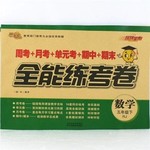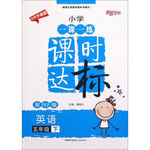题目内容
Anne Battle's "Do We Over-educate Our Children" reminded me that the German author Gunter Grass once said that failing his school leaving exams was a blessing (福气) without which he would never have achieved the position he now holds. I wonder how many other great men and women owe their success to having failed in their academic careers.
I was a college student in the 1960s the time when it was believed that the future wealth of the country depended on the education of the young: money was plentiful, new universities sprang up and great myths evolved to attract young people into the academic life.
Three years later, I got a first-class degree in mathematics. For some months there had been pressure to try for a further degree-the more post-graduate students there are, the mere financial benefits exist for us. My fellow postgraduates and I knew nothing of the outside world, and happily believed that academic life for another three years would uplift us in the eyes of future employers: and so I went to London and began work for a doctor's degree.
Here, for the first time, I came across "mature students" -people who had left school at 16 and, years later, taken A-levels at technical colleges and come to university. Having chosen their subject with great care, and being more mature, they found a joy in their courses unknown to most of us.
I have been working now for several years: life has been very different from what I had been led to expect. However, it is too late Lo change: the state of understanding will not pay to reeducate people completely. As I think back, I regret that I did not fail my A-levels.
47.What can we infer from Gunter Grass' words?
A. He's ashamed of failing school leaving exams.
B. He's satisfied with his present position.
C. He's regarded as a great man.
D. He's achieved a lot in career.
48.When the author was at college in the 1960s, the youth .
A. were linked up with the society
B. were attracted by school
C. were hopeless about life
D. were quite wealthy
49.What makes the author feel regretful?
A. Post-graduate students increased fast.
B. She had had a hard time in academic life.
C. The reality was different from what expected.
D. She missed being a "mature student" in academe.
50.Which agrees with the author's idea?
A. The society couldn't provide enough jobs for the youth
B. Universities have done a lot for the society today.
C. The youth shouldn't be at school for so long.
D. Many great persons failed exams at school.
BBCC D

 全能练考卷系列答案
全能练考卷系列答案 一课一练课时达标系列答案
一课一练课时达标系列答案| 完形填空。 | ||||
| For the first nineteen months, Helen Keller was like other pretty, happy babies in every way. Then a sudden illness destroyed her sight and hearing. 1 she could not hear what other people were saying, the child couldn't 2 to speak. For the next five years, she lived in a world of darkness 3 sounds and words. The person who changed Helen's world was her teacher, Anne Sullivan, who 4 her life in 1887. Miss Sullivan had agreed 5 a blind child who acted like a young animal, rushing wildly around, throwing and hitting anyone whom she could 6 . Who could believe that 7 child could be taught? But Anne had been blind during part of her childhood and had learned to read Braille, 8 is a system of raised dots that can be felt by the fingers of a blind person. She had learned 9 again only after several operations, and she 10 forgot the experience of 11 . Miss Sullivan couldn't teach Helen to speak 12 some other important things 13 . The little girl had to learn to control her actions and feelings. She had always been able to get what she wanted 14 force. The teacher had to 15 her learn that she could not always do 16 she wished to do. Miss Sullivan's battle began. Sometimes there was real fighting 17 the wild child and the strong teacher. 18 , however, the battle was won by Miss Sullivan, who had succeeded 19 Helen that she loved her and wanted to help her. The child and the teacher became friends. They 20 be friends until the teacher's death, fifty years later. | ||||
|